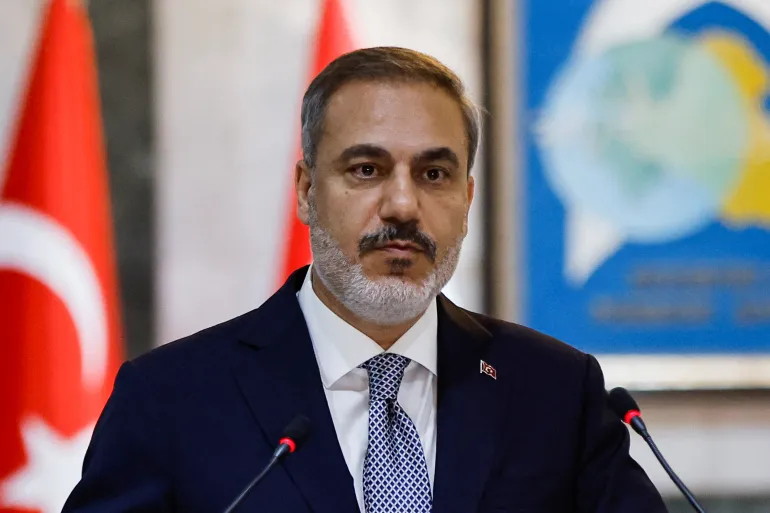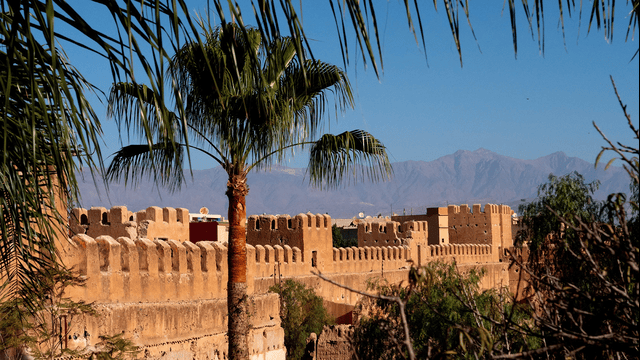
Turkey's Foreign Minister Hakan Fidan speaks with the media after a meeting with Iraq's Foreign Minister Fuad Hussein, in Baghdad, Iraq, August 22, 2023 [Thaier Al-Sudani/Reuters]
Turkey’s top diplomat made a significant visit to Baghdad on Thursday, engaging in high-level discussions ahead of an anticipated trip by President Recep Tayyip Erdogan next month. The visit is part of Turkey's efforts to seek support for its stance against a Kurdish militant group operating from bases in Iraq.
The talks between Turkish Foreign Minister Hakan Fidan and his Iraqi counterpart Fuad Hussein focused on key areas such as counter-terrorism, security, and military collaboration, as reported by the state-run Iraqi News Agency.
Accompanying Fidan were Turkish Defense Minister Yasar Guler and Ibrahim Kalin, the head of Turkey’s National Intelligence Organization.
Turkey has been actively seeking cooperation from the Iraqi government in its fight against the Kurdistan Workers’ Party (PKK), a Kurdish separatist organization that has been engaged in an armed struggle against Turkey since the 1980s. While the PKK is not officially recognized as a terrorist group in Iraq, it is prohibited from conducting military operations against Turkey from Iraqi soil. Despite this, the PKK maintains a presence in the northern region of Iraq, which falls under the semi-autonomous Kurdish area where Baghdad's influence is limited.
A joint statement issued following the discussions emphasized the mutual recognition of the PKK as a security threat to both Turkey and Iraq. It also highlighted the PKK's presence in Iraq as a violation of the Iraqi constitution. The statement noted consultations on necessary measures to be taken against the organization.
President Erdogan is scheduled to visit Iraq in April, following Turkey's local elections at the end of March and the conclusion of Ramadan. The joint statement expressed hopes for Erdogan's visit to mark a significant improvement in the relationship between the two neighboring nations.
Erdogan has previously stated Turkey's determination to eradicate the PKK's presence in Iraq by the summer. Turkey has a history of launching military strikes against targets in Syria and Iraq believed to be linked to the PKK. These actions have drawn criticism from Baghdad, which sees them as infringements on its sovereignty.
Recent months have seen an escalation in Turkish strikes following PKK attacks on Turkish military installations in northern Iraq, resulting in the deaths of 21 soldiers. Kurdish authorities in northeast Syria have accused Turkey of targeting civilian infrastructure during these strikes, leading to disruptions in basic services such as electricity and water supply in areas controlled by the U.S.-backed Syrian Democratic Forces.
Qassim al-Araji, the adviser for national security affairs to Iraq’s Prime Minister Mohammed Shia al-Sudani, stated in a televised interview that Iraq aims to handle the PKK issue similarly to how it dealt with Iranian Kurdish dissident groups based in northern Iraq. Last summer, Iraq and Iran reached an agreement to disarm these groups and relocate their members from military bases to displacement camps, aiming to alleviate tensions with Tehran.















